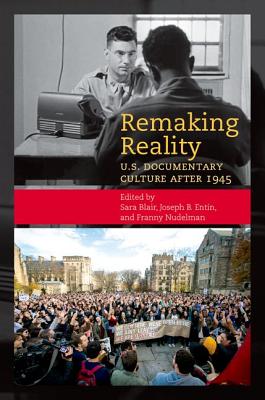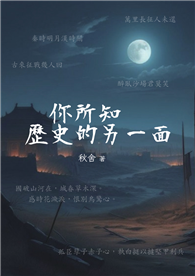After World War II, U.S. documentarians engaged in a rigorous rethinking of established documentary practices and histories. Responding to the tumultuous transformations of the postwar era--the atomic age, the civil rights movement, the Vietnam War, the emergence of the environmental movement, immigration and refugee crises, student activism, the globalization of labor, and the financial collapse of 2008--documentary makers increasingly reconceived reality as the site of social conflict and saw their work as instrumental to struggles for justice. Examining a wide range of forms and media, including sound recording, narrative journalism, drawing, photography, film, and video, this book is a daring interdisciplinary study of documentary culture and practice from 1945 to the present. Essays by leading scholars across disciplines collectively explore the activist impulse of documentarians who not only record reality but also challenge their audiences to take part in reality’s remaking.
In addition to the editors, the volume’s contributors include Michael Mark Cohen, Grace Elizabeth Hale, Matthew Frye Jacobson, Jonathan Kahana, Leigh Raiford, Rebecca M. Schreiber, Noah Tsika, Laura Wexler, and Daniel Worden.
| FindBook |
有 1 項符合
Remaking Reality: U.S. Documentary Culture After 1945的圖書 |
 |
Remaking Reality: U.S. Documentary Culture After 1945 出版社:Blair,Franny (EDT),Joseph B. (EDT)/ Nudelman,Sara (EDT)/ Entin 出版日期:2018-04-09 語言:英文 規格:平裝 / 15.9 x 23.5 x 1.9 cm / 普通級 |
| 圖書館借閱 |
| 國家圖書館 | 全國圖書書目資訊網 | 國立公共資訊圖書館 | 電子書服務平台 | MetaCat 跨館整合查詢 |
| 臺北市立圖書館 | 新北市立圖書館 | 基隆市公共圖書館 | 桃園市立圖書館 | 新竹縣公共圖書館 |
| 苗栗縣立圖書館 | 臺中市立圖書館 | 彰化縣公共圖書館 | 南投縣文化局 | 雲林縣公共圖書館 |
| 嘉義縣圖書館 | 臺南市立圖書館 | 高雄市立圖書館 | 屏東縣公共圖書館 | 宜蘭縣公共圖書館 |
| 花蓮縣文化局 | 臺東縣文化處 |
|
|
圖書介紹 - 資料來源:博客來 評分:
圖書名稱:Remaking Reality: U.S. Documentary Culture After 1945
The Art of Elio
Orgy Plus Massacre 2: Sexy, Scary & Sensational Cinema (1957-1959)
Scoring Italian Cinema: Patterns of Collaboration
The Absence Trilogy
Law, Justice, and Society in the Medieval World: An Introduction Through Film
Law, Justice, and Society in the Medieval World: An Introduction Through Film
Back from the Future: 40 Years of Fandom, Flux Capacitors, and Timeless Adventures
Radicalisation: A Conceptual Inquiry
Epidemic Cinema: The Rise of a Genre
Performance Art in Portugal
Orgy Plus Massacre 2: Sexy, Scary & Sensational Cinema (1957-1959)
Scoring Italian Cinema: Patterns of Collaboration
The Absence Trilogy
Law, Justice, and Society in the Medieval World: An Introduction Through Film
Law, Justice, and Society in the Medieval World: An Introduction Through Film
Back from the Future: 40 Years of Fandom, Flux Capacitors, and Timeless Adventures
Radicalisation: A Conceptual Inquiry
Epidemic Cinema: The Rise of a Genre
Performance Art in Portugal
|











